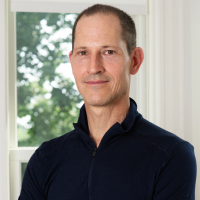
In the early 1990s, I moved to Berlin, Germany, fresh out of a failed marriage, heartbroken and friendless. I arrived dreaming of Christopher Isherwood, bars, bohemians, and cabaret, but mostly I experienced the relentless hustle of making a living and scrounging for work permits from the Fremdenpolizei. The little bit of writing time I found, I spent doubting my every sentence. In the library at the John F. Kennedy Institute, I discovered a writers group and met a few Americans who would become close friends. We exchanged both writing and books, which was how I first encountered the diaries of Virginia Woolf. Here, I found the portrait of a brilliant mind experimenting with language and ideas. I also discovered that this genius experienced doubts about her work just as I did about mine. In Woolf’s diary entry on April 30, 1926, she muses anxiously about writing “Time Passes,” the second section of her novel To the Lighthouse: “I cannot make it out…. I rush at it, and at once scatter out two pages. Is it nonsense, is it brilliance?” In her diary months after the novel was published, she writes: “I am not sure if it is good; I was disappointed when I read it through the first time. Later I liked it. Anyhow it is the best I can do.” I think every writer can take solace in these words.
Thirty years after my time in Berlin, I still keep Woolf’s diaries close. On particularly frustrating days, I can open them up and find Woolf laboring over her novel The Years: “Is it all too shrill and voluble? And then the immense length, and the perpetual ebbs and flows of invention. So divinely happy one day; so jaded the next.” I read that, feel much less alone, and get back to work.
—John Fulton, author of The Flounder (Blackwater Press, 2023)
Photo credit: Jennifer Waddell







